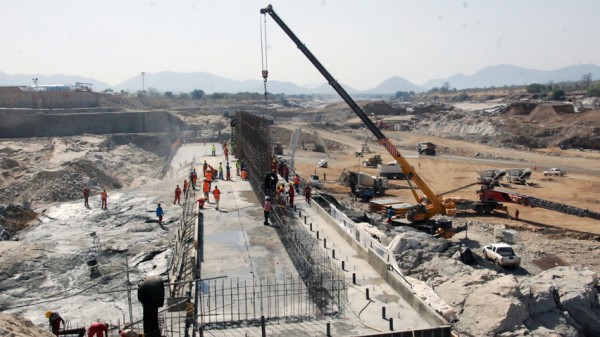
There is a village in Afghanistan by the name of Kobakai, a few winding hours from Kabul, where the lives of the residents changed because of one thing: water.
With help from outside groups such as CARE, one morning the residents of Kobakai (ko-BAH-ki) woke to find that beginning that day they would not have to walk down a two-mile hill to fetch water from a stream where their farm animals drink and defecate. That morning, there was a water pipeline that traversed from a reservoir in the surrounding mountains to four taps in the village.
To those in the village, the water had been a far-off, unreachable oasis. It was a two-hour walk up a steep incline to reach the reservoir. Much of the water would likely have spilled on the return trip. The water pipeline ended the twice-a-day ritual of women and children bringing water from the polluted stream up the hill to the village. It also meant children would have more time during the day to attend school once one finally opens. Residents already have more restful nights because they’re less apt to be stricken with diarrhea or other water-borne illnesses. Not to mention the tea tastes much better.
In Kobakai today, the tea served to guests has a vibrant color, a zestful smell and an addictive taste thanks to the clean water that can now be used. Life is better with clean, healthy water.
http://redsnowltd.com/portfolio/village-near-kabul-feels-cut-off-from-aid
Water. We all need it and will do anything to get it and keep it.
The struggles for Kobakai were man-against-nature. Bringing the water from its source in a different, more efficient manner, to get what life demands worked for the village. It was a trade-off between mountain paths and pipelines.
It’s not so easy when different nations demand the same water, man-against-man. It becomes even more tenuous when a once “have-not” nation suddenly discovers it has the means to turn the tables – or the tap – on those who were “haves” at their expense.
Right now, the focus is on the Nile River. Ever since Ethiopia announced that it was diverting the river’s course after a meeting between Ethiopian Prime Minister Hailemariam Desalegn and Egyptian President Mohamed Morsi in late May, the prospect of a water war between Egypt and Ethiopia has become a regular feature of Egyptian newscasts and front pages.
According to UNESCO, the current interstate conflicts are happening mainly in the Middle East. Here, there’s the conflict stemming from the Euphrates and Tigris Rivers among Turkey, Syria and Iraq, and then there’s the Jordan River conflict among Israel, Lebanon, Jordan and the State of Palestine. In Africa, there’s the Nile River-related conflicts among Egypt, Ethiopia, and Sudan, and in Central Asia, there’s the Aral Sea conflict among Kazakhstan, Uzbekistan, Turkmenistan, Tajikistan and Kyrgyzstan.
“Water scarcity threatens economic and social gains and is a potent fuel for wars and conflict,” said U.N. Secretary General Ban Ki-moon to delegates at the first Asia-Pacific Water Summit last December.
For a country facing daily domestic crises in the aftermath of its 2011 revolution, the dam is a foreign threat that Egypt can ill afford. Analysts say Ethiopia is seizing on Egypt’s distraction and relative fragility to plunge ahead with plans that have long been on the drawing board but have always been thwarted by Egyptian resistance. To Egyptians accustomed to thinking of their country as a powerhouse of the Arab world, the idea of bowing to a historically weaker African rival has been a sobering reminder of their nation’s diminished clout.
http://www.cbc.ca/news/world/story/2013/05/30/nile-dam-egypt-ethiopia.html
For Ethiopia, the dam promises abundant energy and an escape from a seemingly permanent spot in the lowest rungs of the world’s human development index. For Egypt, the consequences could be dire: a nationwide water shortage in as little as two years that causes crop failures, power cuts and instability resonating far beyond even the extraordinary tumult of the recent past.
Desalegn said “nothing” and “no one” will stop the dam’s construction. He downplayed the prospect of conflict, saying Egypt leaders won’t go to war unless they “go mad.”
A 10-person Egypt-Sudan-Ethiopia experts panel concluded that the dam will not “significantly affect” water flow to Egypt and Sudan, according to Ethiopian officials. Sudan said it accepts the outcome of the finding and supports Ethiopia’s position.
Will it come to war? Most bet against it, but wars have been started for other reasons to ignite patriotism and rally “the people” behind a government. Janine Vivekananda, one of the authors of an International Alert report of potential water wars, said, “Water management will be a huge tinderbox and now is the time for international organizations to come together. There is huge potential not just for conflict but for cooperation.”
http://www.thetrumpet.com/article/4532.2790.0.0/world/environment/water-scarcity-a-cause-for-war
We will see which way the world decides.
(Photo credit: CBC News)